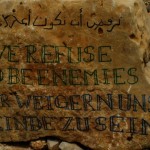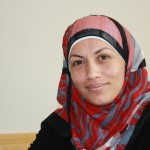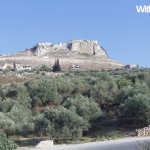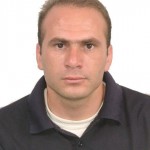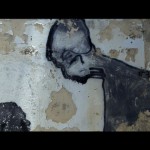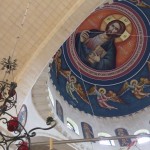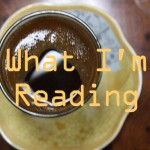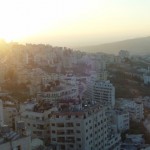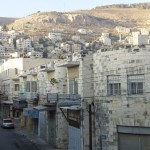
A few weeks before I left for Palestine one of my professors suggested that, when I arrive, I make a point to write down anything that surprises me. These are the things, he said, that one forgets after becoming more accustomed to a new country or culture.

Nablus
SERVICE OR TAXI? EITHER WAY, A NICE CONVERSATION.
I take a “service†everywhere around town (pronounced ser-vees). They are yellow and black, with black decals separating them from the taxis that drive around town charging 5 times more for the same ride.  When I first arrived, I couldn’t tell which was a service and which was a taxi, so I just flagged down everyone and struggle in my minimal Arabic to decipher how much the ride will cost. If the driver speaks English, he will ask me questions and welcome me (Where are you from?  How long are you staying?  Do you like Nablus?).  If he doesn’t, he’ll ask me questions and welcome me in Arabic that I barely understand, making attempts to chat even when my ignorance is clear.
KINDNESS, OUT OF THE BLUE
The biggest thing I’m struck with is the sincere welcome and kindness offered to me every single day by people I’ve never before met. Yesterday, I took a taxi home from downtown and a few hours later, walked out of my apartment to head back downtown. The same taxi driver pulled over and offered me a ride back. When I gave him money for the ride, he refused.
I mailed a package today and chatted with the man at the DHL store, who lived in Texas for six years. He talked about the wonderful hospitality he experienced in Texas and how his three kids are all abroad now. He invited me to celebrate a Ramadan dinner with he and his wife sometime this coming month.
A few days ago, around lunchtime I was in Ramallah on my way to Jerusalem. I wanted to buy a banana from a vendor accustomed to selling bananas by the kilo. When I asked for one, he said, “Wahad kilo?†(“One kilo?â€) and I said “La, wahad wahad,†(Bad Arabic for, “No, just oneâ€). He just gave it to me at not charge and smiled at the idea of me buying just one banana.
When passing through the checkpoint from Ramallah to Jerusalem, Palestinians encourage me to stay on the bus and pass easily though, even though they have to exit the bus and submit to a much longer screening. When stopped by a police officer on the way from Ramallah to Nablus, I ask what he wanted and the woman next to me said, “Maybe there was a problem.” She went on to ask where I’m from and when I say America, she looked me in the eyes and said a very sincere, “Welcome to Palestine.” After checkpoints and being stopped by police, I was warmed by the sincerity and humility with which she welcomed me to her land.
I only hope that visitors to the States feel the same sort of welcome that I’ve felt here.
(Want to help welcome people visiting the US? Host travelers from www.couchsurfing.org!)
SUPER LOUD MUSIC
From late morning until after sunset, Arabic tunes and pop music thumps through the entire city, including the little suburb where I live, so loudly I sometimes can’t hear the TV in my apartment over the beat of the music. The music is turned off when the call to prayer plays over a loud speaker from the local mosque and is quickly turned back on when prayers are over.  Taking a nap to escape current heat wave is a difficult thing!
EXTRAORDINARY ARRAY OF OUTFITS
As I walk through downtown Nablus, one large circle encompassed by a movie theatre, an ice cream shop constantly packed with people, the Arab Bank and lots of other shops and falafal stands, I see women wearing an extraordinary array of outfits. From black embroidered abayas and hijabs to black leggings and high heels. At the hairdresser, I watched women get their hair washed, straightened and glued into place, only to put their hijabs right back on before they left the salon. Â I felt like I knew a great secret!
THE LADIES HOOKAH LAIR
In Chicago, I got into the deliciously bad habit of smoking a hookah with apple tobacco a few times a week. I like the sound it makes and the way it smells, I like the taste of the apple tobacco, and I love the decorative bowl and tasseled hose. Here, I’m never quite sure where I can grab a hookah because the cafes are typically filled with men. As a foreign woman, I imagine I could go in for a hookah and tea and not seem any stranger than I already am. If I want to smoke with women, the only places I’ve found so far are the fairly expensive hotels in the neighborhood. I’m looking forward to finding the secret lair.
NABLUS TASTES BETTER
At home here in Nablus, a falafel sandwich costs 2 NIS (about 50 cents). When I went to Jerusalem, I paid 6 NIS for the same thing. Not only does it cost less in Nablus, but it tastes better! In Nablus, I know a great place where I can put all my favorite falafel fixin’s on myself.
RAMADAN
Ramadan began today. Yesterday, the market was packed with people buying food. The town bustled and people seemed busy. It was also a bit cooler than the past couple weeks, which only added to the fun atmosphere. Today, things seem to be moving at a more purposefully slow pace. My favorite falafel stand was closed for repairs around lunchtime, when usually it’s packed with customers elbowing their way to condiments and salad for a sandwich.
(Pakistanis set for Ramadan amid flood misery)
MALAYALAM? ITALIAN? NOPE, ARABIC.
I’m struggling with my Arabic. I ask questions and read my workbooks and listen to Omar Othman teach conversational Arabic on my computer, but still Italian and Malayalam come to my lips first. It’ll be a wonderful day when I feel comfortable chatting with a cabby.
